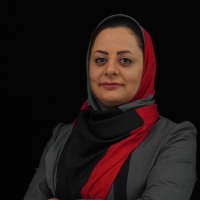Predicting Covid-19 Preventive Healthy Behaviors Based on Dysfunctional Attitudes in Five Countries
Dysfunctional attitudes are biased assumptions and beliefs that the subject has toward himself, his surroundings, and the future world.
The present study aimed to predict COVID-19 preventive healthy behaviors based on dysfunctional attitudes in five countries.
This was a descriptive, correlational study, and the statistical population of the study included all individuals over the age of 18 years residing in Iran, Australia, England, Sweden, and Canada. Subjects were selected by the voluntary sampling method in the Spring of 2020. In total, 498 electronic questionnaires encompassing three sections of demographic characteristics, dysfunctional attitude scale (1987), and COVID-19 preventive health behaviors questionnaire (2020) were completed online. In addition, data analysis was performed in SPSS version 21 using Pearson’s correlation coefficient and stepwise multiple regression.
In this study, there was a significant negative relationship between dysfunctional attitudes and COVID-19 preventive healthy behaviors (P < 0.001). In addition, perfectionism, gender, and age predicted healthy behaviors (P < 0/001). The results of the comparison of Iran with other countries also demonstrated a significant reverse correlation between dysfunctional attitudes and healthy behaviors (P < 0.001). Moreover, there was a significant association between marital status, age, level of education, gender (P < 0.001), and economic status (P < 0.05) with healthy behaviors in Iran while no significant relationship was observed in other countries studied in this regard.
It is suggested that workshops on changing dysfunctional attitudes and strengthening positive attitudes in community members be held in-person or via cyberspace before or during the occurrence of crises such as the COVID-19 outbreak.
-
Effectiveness of emotional couple’s therapy on increasing effective dialogue and marital forgiveness in incompatible couples visiting counselling centres
Menoosh Karami, *, Maryam Akbari
Journal of Psychological Sciences, -
The Effect of Self-compassion Training on the Suicidal Thoughts and Experiential Avoidance of Parents with Physical Disabilities Children
, Afshin Tahmasebi *
Empowering Exceptional Children, -
The Effectiveness of HAMRAH Cognitive Rehabilitation Package on Improving Visual Perception in Students with Dysgraphia
, *, Kamran Yazdanbakhsh
Journal of Cognitive Psycholog, -
Design and validation of Panikar occupational typology questionnaire
, Vahid Haghighi *, Mohammadali Fadayi
Journal of Career and Organization Consulting,




